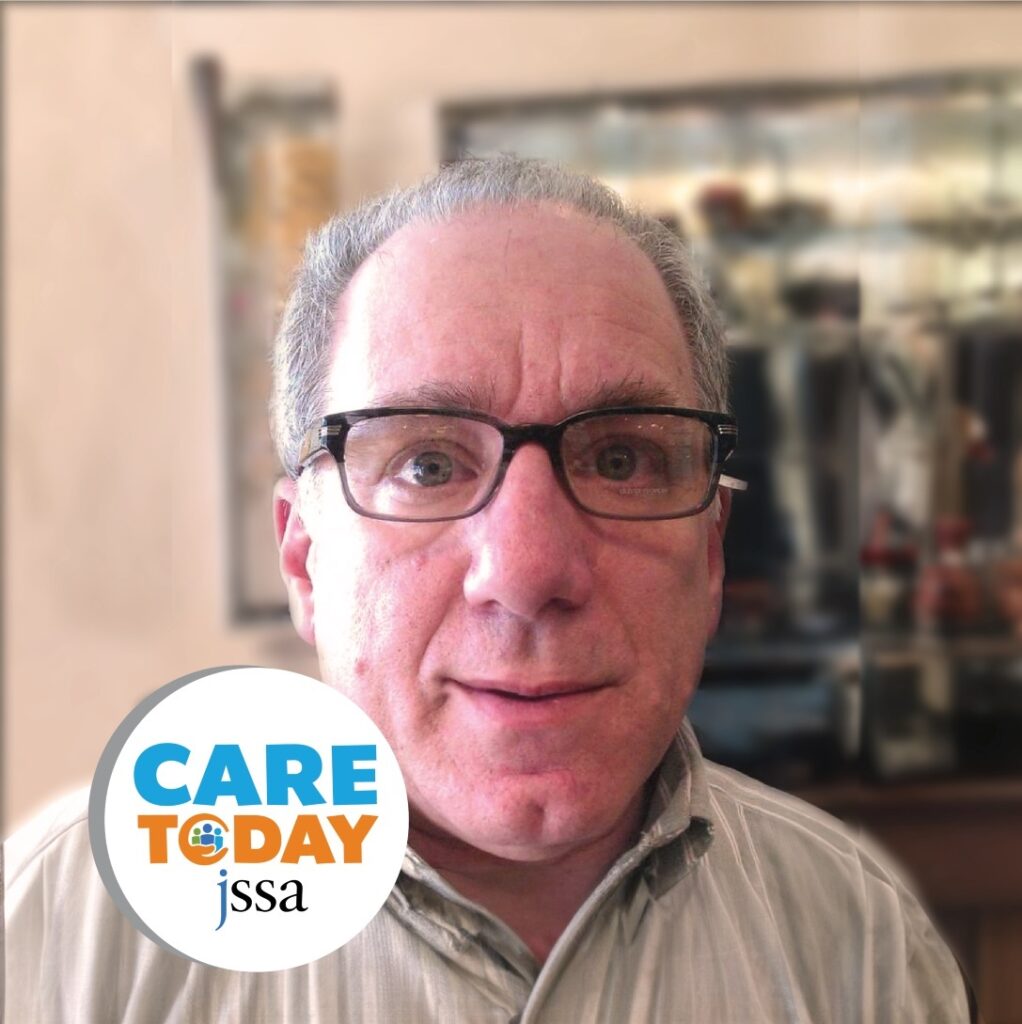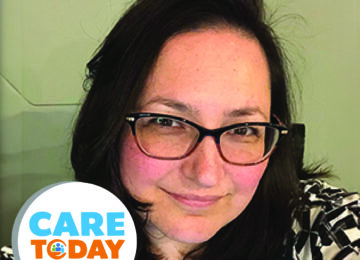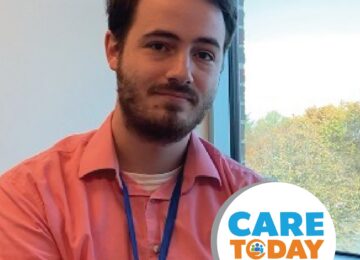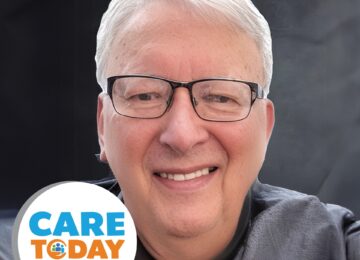Here to Hold a Hand

At JSSA, we are honored to serve thousands of individuals and families every year in their moments of need. Our supportive and compassionate staff and volunteers have a personal call to do this vital work. Their care today supports strength for tomorrow. Here is one of their stories.
The most important responsibility of a hospice chaplain is to honor the unique spirit of patients and their families. Rabbi David Rose finds the best way to do this is to listen and to help patients and their families to listen to each other. People are often uncomfortable talking about death and dying.
Some time ago, David served on the care team for a patient who was moved into hospice care from the hospital. The patient was non-responsive, and his son asked that if his father regained consciousness, he not be told that he was in hospice care.
The weeks passed, the patient became more aware of his situation, and David and the hospice team worked together to support the patient as his situation changed.
“Am I dying?” the patient asked David. When David started to explain he was a hospice chaplain, the man immediately stopped him and said, “Okay, don’t tell my son.”
This kind of cat-and-mouse around hospice is not uncommon with patients and their loved ones. Misconceptions about hospice care and its benefits leave many families scared that death is imminent.
JSSA ensures hospice patients experience comfort, respect, and dignity as they navigate life limiting illnesses. At the end of life, sometimes patients stabilize or improve, and end their time in the hospice program and move to JSSA’s Transitions program. JSSA’s hospice team includes social workers, physicians, nurses, volunteers, hospice aides, and chaplains like David to serve patients’ every need with compassion and cultural sensitivity.
Hospice Chaplaincy at JSSA
David trained as a hospice chaplain after serving as a congregational rabbi for over two decades. He began working with JSSA 11 years ago. Like all hospice chaplains, David is trained to work with people of different faiths.
“I love sitting with people and hearing their stories and guiding them through this process,” he said. “I’m just another member of the hospice team. Sometimes, there is prayer or deep conversations about life and death, and, sometimes, I’m just holding a hand.”
If a patient dies, David now also leads the bereavement team for those left behind. JSSA’s Hospice offers bereavement support for 13 months following the patient’s death. Most bereavement counseling is done over the phone, and he finds it most welcomed by spouses.
While many people might be in some sense “prepared” for the death of a loved one, spouses often struggle the most, David said. Especially for husbands or wives who find themselves alone in their beds and their homes for the first time in decades, David is a listening ear, acknowledging their loss and helping them find ways to heal.
“This work is intense, but so, so meaningful,” David said. “I find it to be beautiful!”



